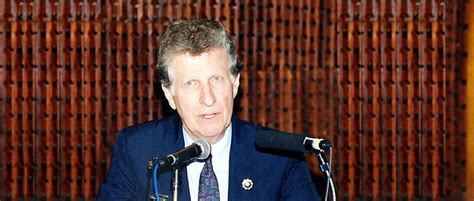A Quote by Stafford Cripps
It is not yet too late for the Indian people to decide on rapid, ordered progress. I can assure them that the British people are as determined upon self-government for India as they are themselves.
Related Quotes
In England, the population explosion can be linked very clearly with the enclosure of the commons that uprooted the peasants from their land. In India, it was the same thing: the population increased at the end of the 18th century when the British took over and Indian lands were colonized. Instead of the land feeding Indian people it started to feed the British empire. So we had destitution. Destitute people who don't have their own land to feed themselves can only feed themselves by having larger numbers, therefore they multiply. It's the rational response of a dispossessed people.
I am committed to furthering the self-determination of Indian communities but without terminating the special relationship between the Federal Government and the Indian people. I am strongly opposed to termination. Self-determination means that you can decide the nature of your tribe's relationship with the Federal Government within the framework of the Self-Determination Act, which I signed in January of 1975.
I would like to see the Punjab, North-West Frontier Province, Sind and Baluchistan amalgamated into a single State. Self-government within the British Empire, or without the British Empire, the formation of a consolidated North-West Indian Muslim State appears to me to be the final destiny of the Muslims, at least of North-West India.
The words of the Declaration of Independence, as given effect by Washington...are to be accepted as real, and not as empty phrases...that in very truth this is a government by the people themselves, that the Constitution is theirs, that the courts are theirs, that all the government agents and agencies are theirs... It is for the people themselves finally to decide all questions of public policy and to have their decision made effective...We here, in America, hold in our hands the hope of the world.
We need examples of people who, leaving Heaven to decide whether they are to rise in the world, decide for themselves that they will be happy in it, and have resolved to seek not greater wealth, but simpler pleasure; not higher fortune, but deeper felicity; making the first of possessions, self-possession; and honouring themselves in the harmless pride and calm pursuits of peace.
The plan to carve up British India was never approved of or accepted by Gandhi...who realised too late that his closest comrades and disciples were more interested in power than principle, and that his own vision had long been clouded by the illusion that the struggle he led for India's freedom was a nonviolent one.
My colleagues and I are of that generation of young men who went through the Second World War and the Japanese Occupation and emerged determined that no one–neither Japanese nor British–had the right to push and kick us around. We determined that we could govern ourselves and bring up our children in a country where we can be proud to be self-respecting people.
One would have thought that if there was one cause in the world which the Conservative party would have hastened to defend, it would be the cause of the British Empire in India ... Our fight is hard. It will also be long ... But win or lose, we must do our duty. If the British people are to lose their Indian Empire, they shall do so with their eyes open.































